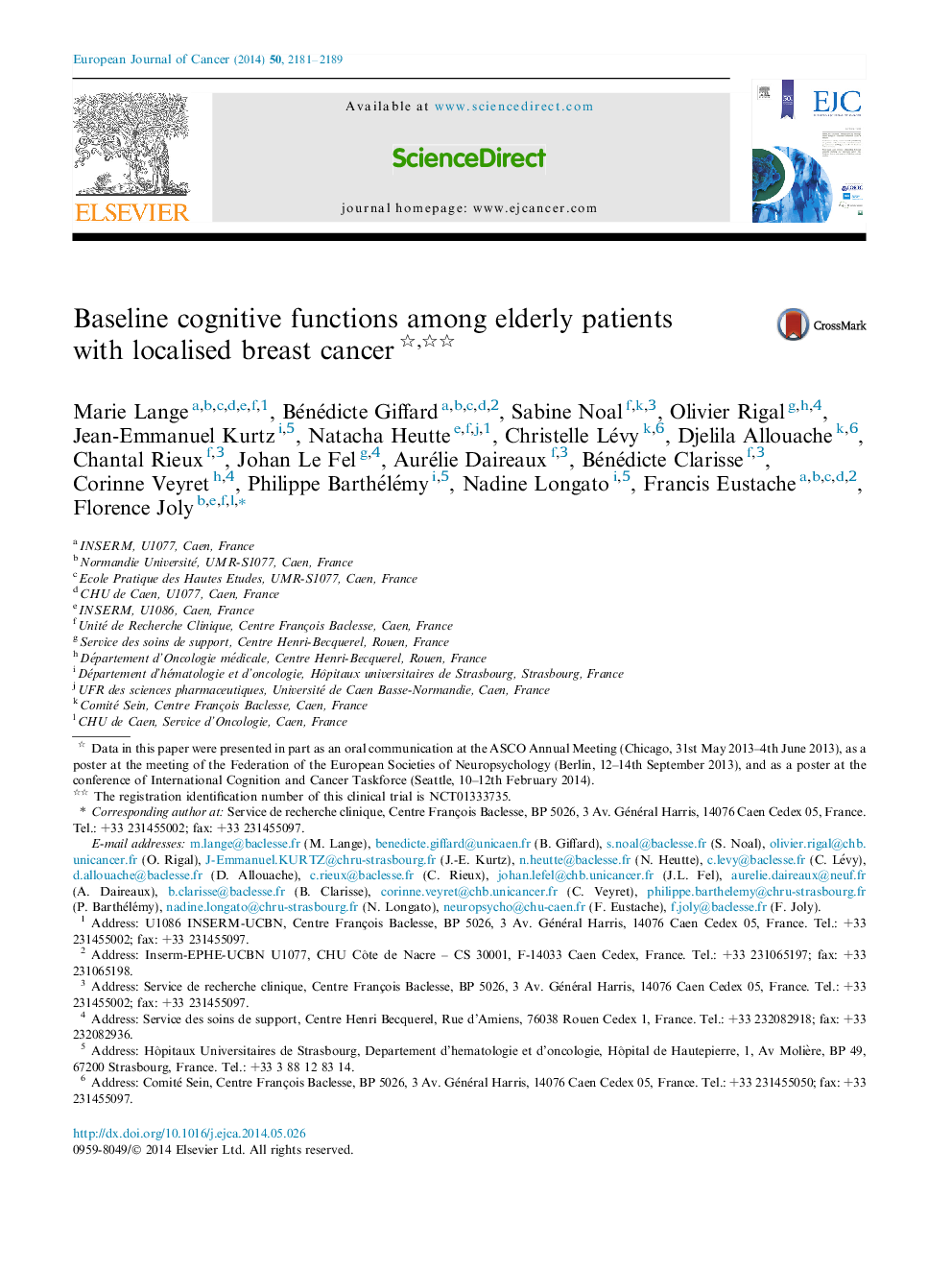| Article ID | Journal | Published Year | Pages | File Type |
|---|---|---|---|---|
| 2121962 | European Journal of Cancer | 2014 | 9 Pages |
PurposeCognitive deficits (CD) are reported among cancer patients receiving chemotherapy, but may also be observed before treatment. Though elderly patients are expected to be more prone to present age-related CD, poor information is available regarding the impact of cancer and chemotherapy on this population. This study assessed baseline cognitive functions (before adjuvant treatment) in elderly early stage breast cancer (EBC) patients.MethodsWomen >65 years-old with newly diagnosed EBC were included in this prospective study. Episodic memory, working memory, executive functions and information processing speed were assessed by neuropsychological tests. Questionnaires were used to assess subjective CD, anxiety, depression, fatigue, quality of life and geriatric profile. Objective CD were defined using International Cognition and Cancer Task Force criteria. A group of elderly women without cancer coupled with published data related to healthy women were used for comparison (respectively to subjective and objective CD).ResultsAmong the 123 elderly EBC patients (70 ± 4 years) included, 41% presented objective CD, which is greater than expected in healthy population norms (binomial test P < .0001). Verbal episodic memory was mainly impaired (21% of patients). No correlation was observed between objective CD and cancer stage or geriatric assessment. Subjective CD only correlated with verbal episodic memory (P = .01).ConclusionsThis is the first large series assessing baseline cognitive functions in elderly EBC patients. More than 40% presented objective CD before any adjuvant therapy, which is higher than what is reported among younger patients. Our results reinforce the hypothesis that age is a risk factor for CD in EBC patients.
